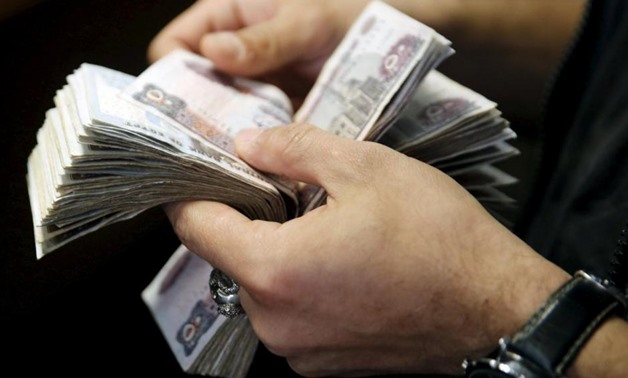
Egyptian currency_Reuters
CAIRO - 17 May 2022: The percentage of government investments directed to human development is 51 percent, according to Minister of Planning and Economic Development, Hala El-Said.
El-Said referred to the education sector, where about LE 52 billion were directed in nine years to education, with a growth rate of 817 percent in 21/2022 compared to 10/2011.
This came during El-Said's review of the basic features of the investment plan initiatives for the next fiscal year 22/2023 for the education and health sectors, during a discussion of the main features and objectives of the economic and social development plan for the year 22/2023 before the Parliament's Plan and Budget Committee.
The minister explained that in the field of pre-university education, the plan aims to continue the efforts made to reduce the densities of classes and expand access to education for all without discrimination, by directing LE 15 billion to provide 25 thousand classes, and LE 1.2 billion to apply competencies in technical education and applied schools, and LE 875 million to improve the competitiveness of the outputs of pre-university education and the establishment of 10 Japanese schools and 20 schools of applied technology, and others.
“In the field of university education, the plan includes credits of LE 7.4 billion to establish and equip 15 private universities with a capacity of 150 thousand students, and LE 1 billion for mechanization 154 test centers in all public universities, and LE 442 million in technology universities,” she noted.
Regarding the health sector, El-Said pointed to the implementation of a number of development initiatives and projects aimed at developing and improving health services, including: comprehensive health insurance, which includes the establishment and development of 94 hospitals and 448 health units, with funds of LE 5.26 billion.
They also included the establishment and development of 148 hospitals with funds of LE 3.676 billion, and the establishment and development of 36 hospitals with funds of LE 1.8 billion, and the establishment and development of 15 hospitals and 104 health units within the framework of the "Development of urban agglomerations within a decent life" initiative, with funds of LE 2.8 billion, and the provision of 1,500 intensive care beds with funds of LE 1.3 billion, and 493 million pounds to enhance the Egyptian role in health care African countries, including Djibouti, South Sudan and Uganda.
“In addition to LE 350 million for the supply of ambulances for Hayah Karima initiatives with 1,000 new cars, LE 350 million for the central laboratory building in Badr, LE 250 million for the development of 52 integration hospitals, and LE 400 million for the automation of 78 university hospitals, in addition to the establishment of 17 waste incinerators, and the provision of 131 waste cars with funds of LE 209 million within the framework of the medical waste treatment project,” she added.
She explained that the performance indicators, comparing 2020 to 2014 indicate a 30% increase in the number of university hospitals, a 24% increase in the number of beds, a 31% increase in the number of nurseries, and a 61% increase in the number of intensive care beds.
The Minister of Planning referred to the culture sector in the 22/2023 plan, pointing to the most important projects in the sector, as it is intended to develop a number of museums, including Saray El-Gezira, the Museum of Egyptian Modern Art, and the House of the Nation, and to develop 35 palaces and houses of culture, annd to establish 3 branches of the Egyptian Public Library in Aswan, Menoufia and Qena. 6 mobile libraries, and the digitization of the library branches in Al-Zawiya Al-Hamra, Dokki and Al-Zaytoun.
Among the most important targets in the culture sector are the development of 20 cultural palaces, 9 children's culture houses, and 4 theaters.
With regard to the youth and sports sector, She said that the plan aims to establish and develop 700 five-a-side stadiums, a youth center, 7 youth cities, 6 youth camps in four governorates, 7 stadiums, five sports cities, eight hospitals and sports medicine units, 60 clubs and four civil education centers in Matrouh, Beni Suef, Fayoum and Sohag.
Comments
Leave a Comment